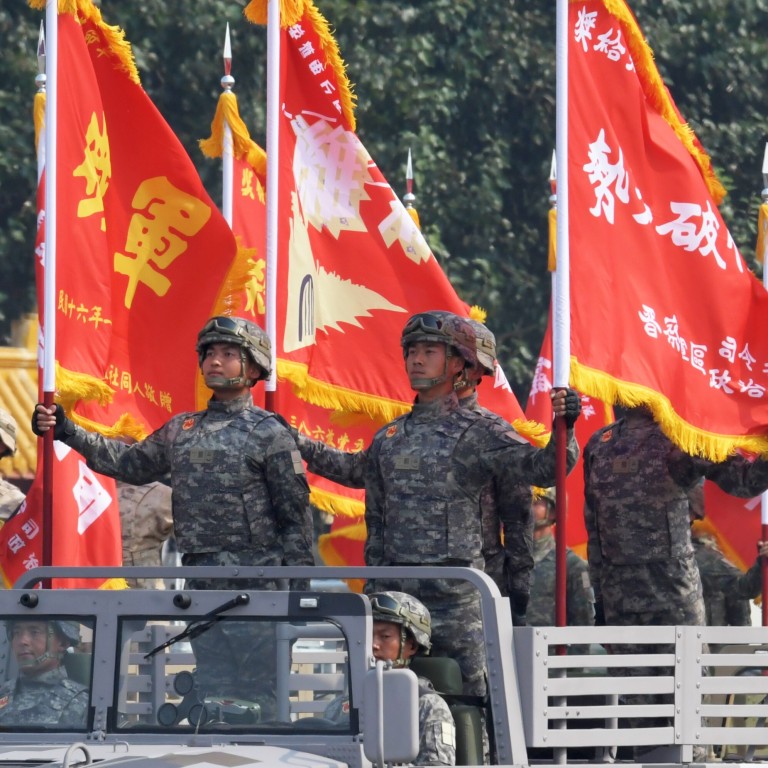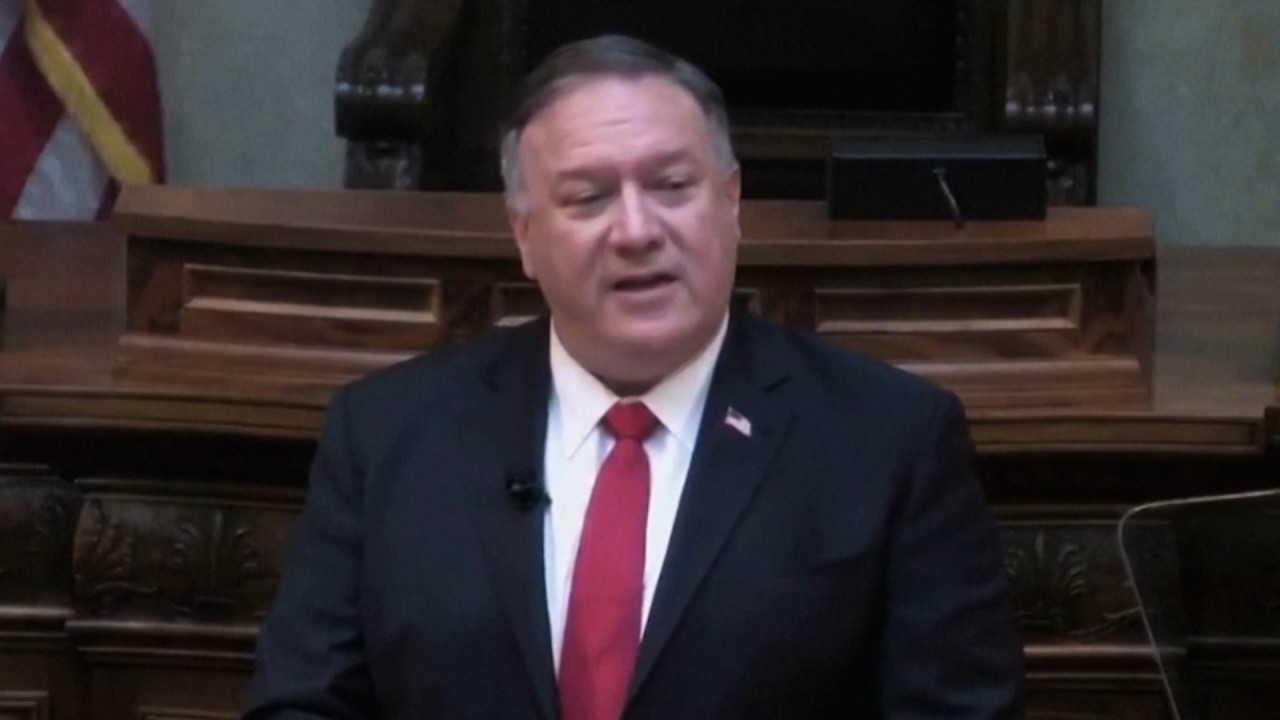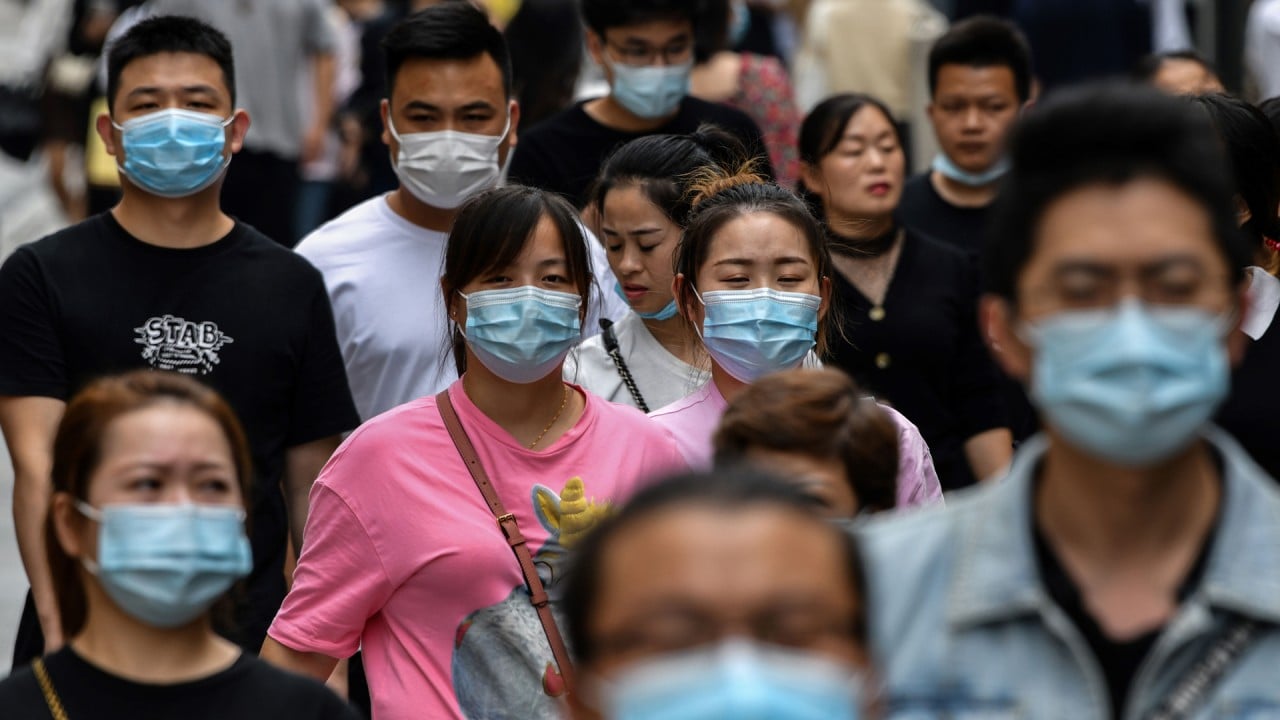
Politico | US spy community not postured to handle rising China threat, House Intelligence Committee finds
- 200-page report warns that ‘significant realignment of resources’ is needed to enable continued US competition with Asian rival on global stage
- Lag comes after two decades of focusing on counterterrorism in wake of September 11 attacks
This story is published in a content partnership with POLITICO. It was originally reported by Martin Matishak on politico.com on September 30, 2020.
The US intelligence community has failed to keep pace with the technological and political strides made by China over the last two decades, a lag that risks leaving policymakers permanently in the dark about a growing, strategic challenge to the country’s national security, according to a report released on Wednesday by the House Intelligence Committee.
The report comes as the US faces threats from China ranging from its military build-up and export of “digital authoritarianism” to Beijing's reach around the world. The 200-page review is classified. The committee, which approved the findings by voice vote during a closed-door meeting on Wednesday morning, provided a redacted executive summary.
“Absent a significant realignment of resources, the US government and intelligence community will fail to achieve the outcomes required to enable continued US competition with China on the global stage for decades to come, and to protect the US health and security,” the summary warns.

01:06
Mike Pompeo urges US officials to beware China’s attempts at engagement
House Intelligence Chair Adam Schiff said in a statement that the intelligence community's “capacity to address hard targets like China has waned” after two decades of focusing on counterterrorism in the wake of the September 11 terror attacks. The nation’s intelligence agencies “have a lot of work to do to fully address the challenge posed by China”, he said.
Wednesday's report is the result of a so-called “deep dive” the House panel began last year into what it viewed as China’s troubling activities around the globe, including Beijing’s malicious cyber efforts and disinformation campaigns; its exportation of invasive surveillance technology; and the continued threat its intelligence services pose to the security of US personnel and national security information.
A committee official said most of the recommendations for reform were aimed at the senior leadership level. The official added that the panel encountered “different results” among the various US intelligence elements about their focus on China, but declined to say which of the 17 clandestine agencies have been better at tackling China-related issues.
US presidential debate a ‘live quarrel’, Chinese internet users say
Committee officials spoke on condition of anonymity to more freely discuss the panel’s findings.
Among the public recommendations: a formal review of the governance of open-source intelligence within the clandestine community and a broader and more formal effort by leadership to mentor the next generation of China analysts.
The committee official said some of the classified recommendations would be easier for agencies to address, however some contained in the public summary – such as creating a bipartisan, bicameral congressional study group to evaluate how the intelligence community organises around these issues and how authority is divided up – could take up to a decade to fully implement.
The report included 36 public recommendations and more than 100 classified recommendations.
The summary does no't mention the kind of election interference that has been alleged in recent weeks by Trump, Attorney General William Barr and other senior administration officials.
But it does highlight the risk posed by Beijing’s “influence actors” and the government’s propaganda and disinformation efforts around events like the protests in Hong Kong and the Covid-19 outbreak.

02:01
China’s Wuhan moves on as global coronavirus death toll passes 1 million
China’s “disinformation evolution – in conjunction with the multitude of foreign influence threats and state-backed disinformation activity emanating from Russia, Iran, and other adversaries – will set the stage for further assaults on the truth, damaging the United States’ ability to advance its policies abroad and effectively engage with American citizens”, the summary states.
A second Democratic committee official said the origin of the examination could be traced back to the panel’s 2012 bipartisan report that concluded Chinese telecoms giants Huawei and ZTE were a national security threat.
The release of the report also comes as the White House is in the midst of legal wrangling over President Donald Trump’s recent executive order barring access to the popular Chinese mobile app TikTok, citing national security concerns.
Earlier this week a federal judge said the administration “likely” exceeded its authority when it tried to impose restrictions on the short form video app, which is owned by Chinese tech giant ByteDance.
TikTok to be shut down if Oracle deal fails to meet US security bar: Mnuchin
“The animating question for this review is, there’s lots of discussion of competing with China … but we really wanted to take a serious look at what does competition with China mean for the intelligence community, specifically,” the first committee official said.
Concerns have only grown since China’s 2015 theft of millions of supersensitive security clearance files held by the Office of Personnel Management, its militarisation of the South China Sea and Beijing’s crackdown on the Uygur Muslim minority.
The document devotes a significant portion to Beijing’s response to Covid-19, from its initial cover-up of the virus – which first appeared in Wuhan, China – to efforts to introduce authoritarian tactics in the digital realm, like a new phone app designed to inform users of their self-quarantine status that also harvests user data and send it to local police.
The first committee official said that virus cropping up during the panel’s review crystallised for them the kind of non-traditional threats that can emanate out of China and “increased our confidence level” in making some the recommendations the committee crafted before the pandemic hit.

02:23
Boycott of Mulan urged by HK activist Joshua Wong as fresh anger sparked over filming in Xinjiang
The Intel committee is separately engaged in another “deep dive” of the US intelligence community’s response to Covid-19 in particular.
In addition to looking at each agencies' performance, the committee’s report examined the resources agencies devote to Beijing – such as funding, personnel and facilities – and the types of products the organisations produce for lawmakers and other consumers of the information and analysis.
“The stakes are enormous. We must do everything possible to accurately predict and characterise Beijing’s intent, or we will continue to struggle to understand how and why the leadership of the CCP makes decisions, and fail to respond effectively,” Schiff said.
Tibetan policeman in New York accused of being foreign agent for China
Schiff said he was optimistic the reforms can be adopted and improve intelligence agencies’ ability to respond to the China threat.
“The good news is that we still have time to adapt. It’s my hope that the Intelligence Community will work hand in hand with the congressional oversight committees to make these necessary changes quickly,” he added.
The project had a “high-degree” of cooperation from the clandestine community itself, which was provided drafts for comment, the second committee official said, as well as from Republican staff – despite the Republican Party’s unofficial boycott of the panel’s proceedings for much of 2020.
Changes were made to the narrative portion of executive summary after a Republican request, which Democrats accepted before the voice vote on Wednesday morning.
Read Politico’s story here.

